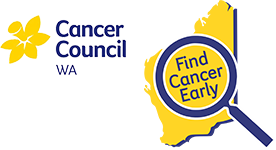‘Be abreast’ in October.
This article was published in the Mandurah Mail on 11 October 2018.
If you’re unsure about a possible symptom you should make an appointment to discuss the change with your doctor without delay, particularly if it’s been more than four weeks since you first noticed the change.
WOMEN from the Peel region are being encouraged to raise awareness and funds this October, as part of Breast Cancer Awareness Month.
Peel Tyre Service owner Robyn Cook has been fundraising for women’s cancers for more than 12 years, after being personally affected by the disease.
“We started Ladies Happy Hour in 2006 when my sister-in-law was diagnosed with breast cancer,” she said.
“Cancer affects all people and it has always been my mission to raise as much money as I can for cancer research.”
Vital funds raised for advanced research into detection, screening and prevention have improved survival rates, with more than 90 per cent of women with breast cancer still alive five years after diagnosis.
As well as raising money, Breast Cancer Awareness Month also focuses on reminding women to be on the lookout for symptoms of the disease.
The disease is still the most commonly diagnosed cancer among WA women and the second highest cause of cancer death.
In 2014 alone, 249 West Australian women died from breast cancer.
Cancer Council WA Cancer Smart manager Melissa Treby said women should be particularly aware of changes that linger for more than just a few days.
“If you’re unsure about a possible symptom you should make an appointment to discuss the change with your doctor without delay, particularly if it’s been more than four weeks since you first noticed the change,” she said.
“Being breast aware and knowing what to look for could help find breast cancer early, which means there are more treatment options and the chances of survival are greatest.”
Symptoms to look for include new persistent pain or discomfort, changed to breast shape, size or feel or any lumps or lumpiness either in the breast or underarms.
“Any skin changes are important to report, too – redness or puckering, or dimpling of the breast. And of course any changes in the position of the nipple or nipple discharge may be important,” Ms Treby said.
“Be breast aware in the shower, when getting dressed, looking in the mirror, putting on body lotion, lying down in bed. You don’t have to be an expert or use a special technique.”
To host a fundraiser this month, register at www.doitforcancer.com.au/hosta-pink-fundraiser.
View Mandurah Mail website here
Photo credit: Miguel Á. Padriñán
